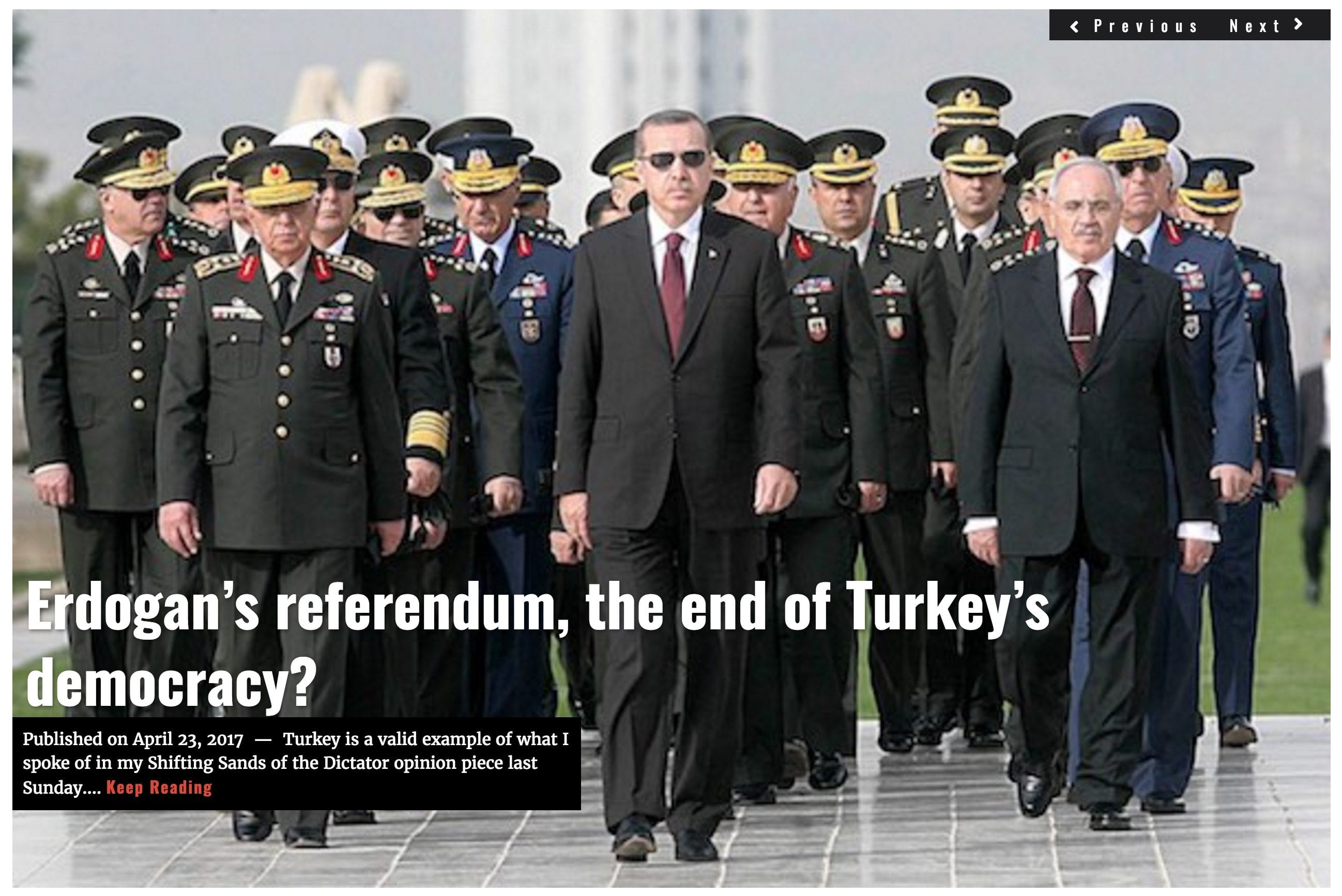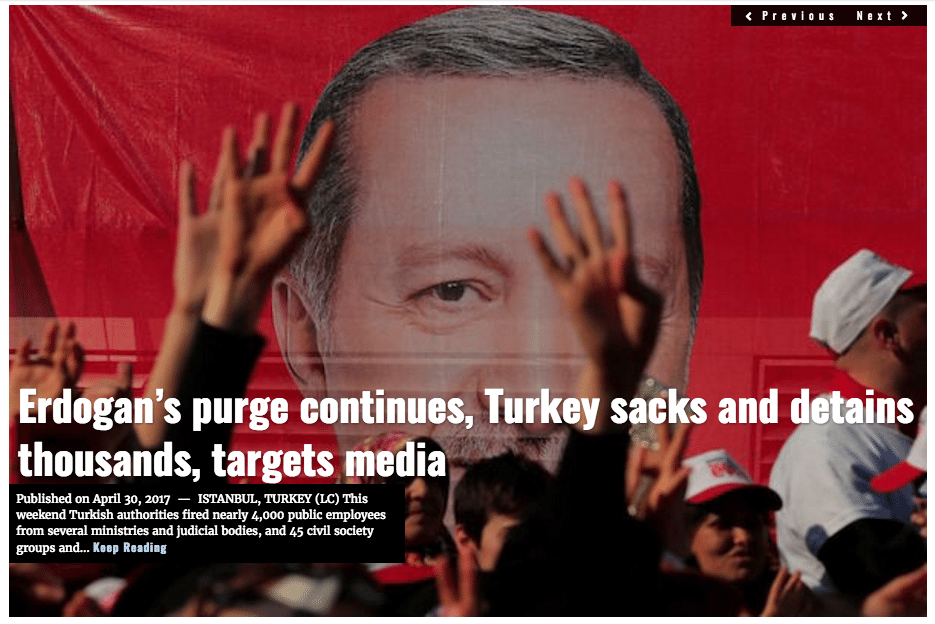Turkey attempts to reset relations in Europe with meetings in France, Germany

This Friday and Saturday both Turkish President Tayyip Erdogan and Turkish foreign minister Mevlüt Çavuşoğlu were in Europe, France and Germany respectively, attempting to improve strained relations with their European allies.
Friday, Erdogan met with French President Emmanuel Macron in Paris. Nominally, the meeting was an attempt to secure several deals, including a tentative deal for Turkish Airlines to buy 25 A350-900 aircraft, and a French-Italian deal for the development and production of a long range air and missile defense system.
In fact, the trip was part of a larger push on Erdogan’s part to call relations with Europe back from the brink. Turkey, a NATO member, has for years sought membership in the European Union (EU). Erdogan said, at a press conference with Macron,
“Unfortunately, we did the first steps in 1963. And it’s now been 54 years that Turkey has been waiting in the antechamber of the EU.”
Macron said that human rights issues in Turkey have effectively prevented any chance of Turkey becoming an EU member. According to Macron,
“As far as the relationship with the European Union is concerned, it is clear that recent developments and choices do not allow any progression of the process in which we are engaged.”
Je ne pense pas que le processus d'adhésion à l'Union européenne puisse aboutir dans les prochaines années. Mais ma volonté est bien de préserver l'ancrage de la Turquie et du peuple turc dans l'Europe, et de faire plus ensemble. pic.twitter.com/6WKZY9wTRT
— Emmanuel Macron (@EmmanuelMacron) January 5, 2018
The biggest sticking point, the status of media freedom and human rights in Turkey, prompted Macron to present the Turkish leader with a list of journalists and non-government workers believed to be wrongly targeted.
“Terror doesn’t form by itself. Terror and terrorists have gardeners,” Erdogan said in response during a joint press conference with Macron. “These gardeners are those people viewed as thinkers. They water … from their columns on newspapers.”
The characterization of some journalists as nurturing terrorism is conciliatory, relative to the rhetoric being used of the summer in which Erdogan said that journalists were serving as foreign spies.
Turkey has had an eventful year in its domestic politics, as Erdogan’s ruling AK party responded to an attempted coup in July 2016. A controversial referendum in April consolidated power in the hands of the president. With the stated purpose of preventing future coup attempts, the AK party has been purging perceived enemies from Turkey’s public and private institutions.
The corresponding outflow of nationalist and populist rhetoric has caused tension with Europe, and especially with Germany, which hosts a substantial diaspora of Turkey’s citizens. In spite of the rhetoric, including Erdogan accusing German Chancellor Angela Merkel of “Nazism” as recently as September, in the past two weeks Turkey began making overtures to Europe and its allies. The first sign of a shift came on December 27th, when Erdogan told reporters “we [Turkey] are obliged to lessen the number of foes and increase the number of friends.”
“We have no problems with Germany, the Netherlands or Belgium,” Erdogan said. “To the contrary, those who are in the governments of these countries are my old friends.”
The next morning Turkey lifted visa restrictions on US Embassy workers in the country.
Also on the 27th, Erdogan announced this week’s trip to Paris, along with a visit to the Vatican. This was an about face for Erdogan, who’s previous trips to European countries were anything but conciliatory. In a trip to Greece, Erdogan used the occasion to question the legitimacy of the Lausanne Treaty, which set the borders of the two countries. In October, Erdogan visited Poland to signal his support for a Polish government with deep antipathy for Europe.
Although public statements from European leaders, including that of Macron, indicating that Turkey’s potential admittance into the EU is doubtful, the relationship received a boost in December, after EU members supported the UN resolution against US President Donald Trump’s move of the US embassy to Jerusalem, which was co-sponsored by Turkey and Yemen.
This year’s economic data shows that over half of Turkey’s foreign investment is flowing from the EU. Influxes of foreign money are especially important because Turkey’s currency has lost 40% of its value against the dollar in the last two years. Also, inflation rates have spiked since an economic contraction following the coup, and continue to grow with the Turkish central bank announcing a 12.75% rate in December.
The choice of France as an entry point into Europe is strategic, as relations with Germany have been on ice due to the imprisonment of a German correspondent for the German daily Die Welt; accusing him of being a propagandist of the outlawed Kurdistan Workers Party.
“If we do not speak to one another the situation can certainly not improve – neither between our countries nor for individuals still being held in custody,” said Turkish Foreign Minister Mevlüt Çavuşoğlu in an October 2017 interview with the German magazine Der Spiegel.
In Saturday’s meeting with German counterpart Sigmar Gabriel, Turkish Foreign Minister Mevlüt Çavuşoğlu said he agreed with Gabriel that “difficulties and disagreement” with Germany needed to be solved through dialogue and cooperation.
“We believe that we can develop our relations in mutual understanding, dialogue and sincere cooperation,” Çavuşoğlu said during a joint news conference.
Çavuşoğlu said that while there was disagreement regarding Turkey’s accession to EU membership, issues such as the renewal of the customs union agreement, which is a benefit to both sides, must be overcome.
Unser Eindruck ist, dass es in der #Türkei den Willen gibt, zu einem besseren Verhältnis zu kommen. Allerdings bleibt die große Sorge um @Besser_Deniz. Die Türken wissen, wie wichtig sein Schicksal für uns ist. @FunkeBerlinpic.twitter.com/H3JO4FjPgq
— Sigmar Gabriel (@sigmargabriel) December 27, 2017
[Title Photo: Macron welcoming Erdogan at the Elysee Palace in Paris on January 5. (REUTERS/Benoit Tessier)]
LIMA CHARLIE NEWS
Lima Charlie provides global news, insight & analysis by military veterans and service members Worldwide.
For up-to-date news, please follow us on twitter at @LimaCharlieNews
In case you missed it:
[contf] [contfnew] 
lima charlie news
[contfnewc] [contfnewc]





